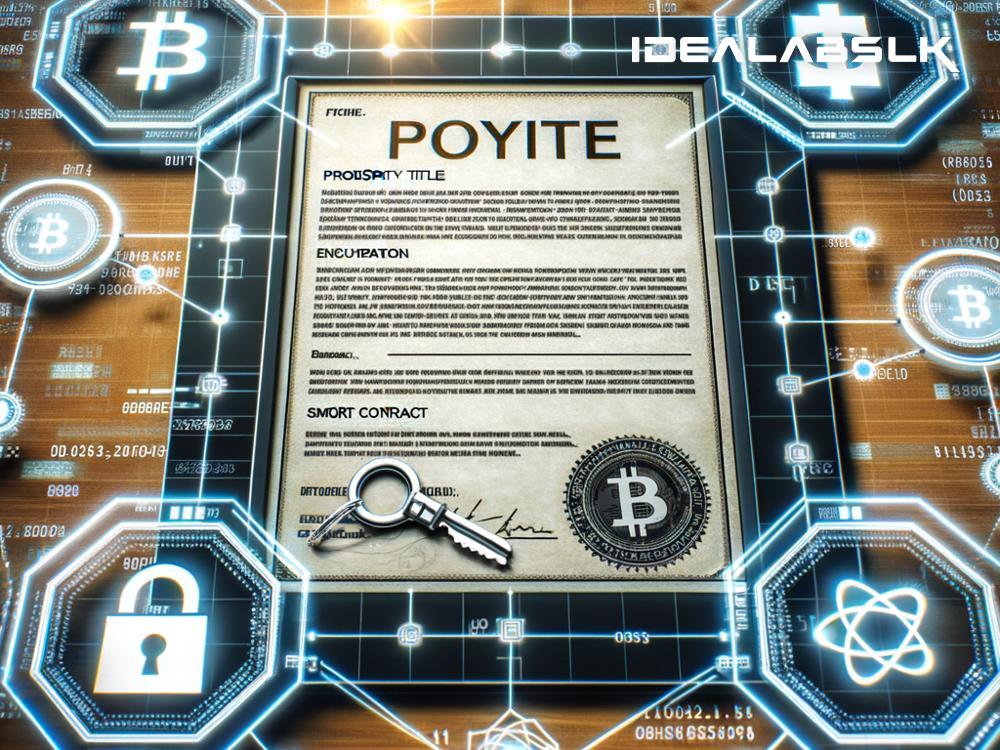Blockchain in Real Estate: Automating Property Title Management
The real estate world is vast and complex, with every property sale involving a substantial amount of paperwork, including the crucial aspect of handling property titles. This process is traditionally lengthy, prone to errors, and requires a substantial manual effort to ensure accuracy. However, the landscape of property title management is experiencing a revolutionary change with the introduction of blockchain technology. Let’s break down this complex topic into simpler terms and understand how blockchain is reshaping the future of real estate.
What is Blockchain?
Imagine a gigantic digital ledger that's accessible to everyone but owned by no one. This ledger records transactions in a way that's transparent, secure, and impossible to tamper with. That's blockchain for you. Each ‘block’ in the chain contains transaction data, and once entered, it's there for good. It's the technology behind cryptocurrencies like Bitcoin, but its potential stretches far beyond.
The Traditional Challenges with Property Titles
Handling property titles is no small feat. It involves verifying that the seller truly owns the property and ensuring the title is free from any disputes or legal hurdles, a process known as title search. This traditional process is not only time-consuming but also expensive. Moreover, human errors can lead to significant legal disputes, and paper-based records can be lost or damaged, leading to further complications.
Blockchain to the Rescue
Now, let's dive into how blockchain can simplify and secure the management of property titles, turning a challenging process into a smoother, faster, and more reliable one.
-
Transparency and Security: Blockchain's transparent nature ensures that all parties involved in the transaction can view the property's history and verify its authenticity. Since each transaction block is linked to the previous one in an immutable chain, altering any information would require changing every subsequent block, which is practically impossible. This brings a level of security and trust to the process that was previously unattainable.
-
Efficiency and Speed: Blockchain can automate the title search process through smart contracts, which are self-executing contracts with the terms directly written into lines of code. These smart contracts can instantly verify a property's ownership history and flag any potential issues, dramatically reducing the time required for title searches.
-
Reduced Costs: By automating the title management process and eliminating the need for intermediaries such as title companies, blockchain can significantly lower the costs associated with property transactions. This makes the buying and selling process more accessible to everyone involved.
-
Elimination of Fraud and Errors: The immutable nature of blockchain ensures that once a transaction is recorded, it cannot be altered or deleted. This drastically reduces the potential for fraud and human error in managing property titles, making the entire process more secure and reliable.
Real-World Applications and Future Prospects
Several projects and companies are already exploring blockchain for real estate applications. For instance, some are developing blockchain platforms for recording and transferring property titles, while others are focusing on creating marketplaces for real estate transactions using blockchain. As these projects advance, we can expect the real estate industry to become more efficient, less costly, and more transparent.
The future of property title management with blockchain technology looks promising. It has the potential to transform real estate transactions, making them faster, more secure, and more accessible. However, it's not without challenges. Legal and regulatory hurdles must be overcome, and the real estate industry must adapt to these new technological advancements.
Final Thoughts
In conclusion, blockchain technology presents an exciting opportunity to automate and secure the process of managing property titles. With its benefits of transparency, efficiency, and reduced costs, blockchain can address many traditional challenges in real estate transactions. As we move forward, the integration of blockchain into real estate promises to simplify the buying and selling of properties, ensuring a more reliable and streamlined process for everyone involved.
As technology continues to evolve, the real estate industry stands at the brink of a major transformation. Blockchain, with its potential to revolutionize property title management, is at the forefront of this change, paving the way for a more secure and efficient future.

